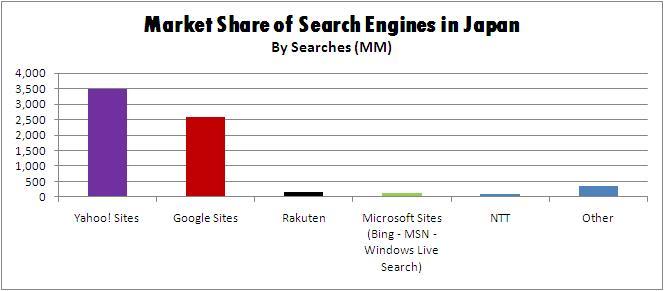Japan’s Digital Media Market: Opportunities for Future Expansion

The digital media market in Japan is huge and booming. This is made possible by Japanese youth who embrace all manners of new digital technologies for communication, socializing and business purposes.
Japanese use digital media in a variety of platforms: blogs, microblogging, social networking websites, bulletin board systems (BBS)/forums, instant messaging, video-sharing sites, search engines, e-commerce etc. The invention of mobile devices and smartphones has also helped increase the number of digital media users in the country, a trend that is expected to grow even as 3G and 4G devices are mass-produced.
Blogging is a popular activity in Japan, with even the Washington Post describing the Japanese as “wild bloggers”. Millions of Japanese are also reportedly engaged in microblogging on their cell phones and other hand-held devices. People blog about fashion, entertainment, sports and other non-controversial topics, while shying away from discussing knotty issues like politics and religious tension. The majority of bloggers in Japan do so anonymously, also tending to hide their identity in online forums.
Social media sites like Mixi, Facebook, Myspace and other less-known ones are springing up to catch Japanese users’ attention. Users are patronizing these sites to find out information about their preferred products/services, then using them to network with friends and business associates. A few Japanese businesses have turned to social media websites nowadays to market their services/products and win the hearts of new customers. There is no doubt that the use of social media technology in Japan will increase in the coming years as business owners seek ways to reduce the cost of marketing and advertizing.
As more and more Japanese people utilize e-commerce sites like Yahoo Japan, Rakuten and Amazon to purchase goods and merchandise, use of search engines to find products has definitely increased. A survey that was conducted in 2009 revealed that Yahoo Japan remains the most popular search engine in Japan, followed by the Google sites.
Similarly, Youtube has remained the most used site for video-sharing among Japanese people. This is followed by home-made video-sharing site named NicoNicoDouga, with an estimated 13 hours per view. Using the digital media for bulletin boards and forums is gaining popularity gradually, and more Japanese forum-posters or forum-managers will likely emerge in the coming years.
While all these instances point to a booming and prosperous digital media marketing in the near future, any new entrants (foreign companies, especially) into the country will immediately face two major obstacles:
- Customizing services to suit Japanese customers who prefer to interact only in Japanese language;
- Adoption of cloud computing to manage the bulk of data that will be generated, processed and stored in the course of operating in Japan.
While it is possible to easily localize services to satisfy customer requirements, most foreign entrants to the Japanese digital media market will have to contend with storing the large amount of electronic files, data, and digital content arising from their operations. They will also be required to provide a fast and reliable access to their services on a regular basis.
Cloud computing offers incomparable opportunity for companies to enlarge their storage capacity and increase service performance. Customers can confidently use digital media without worrying about losing important files or having personal information or data omitted due to lack of space available on some foreign servers.
For social media sites, a promising future means that they need to be ready for sudden traffic surges. In order to do this, they need a cloud host that has a high availability system. GMO Cloud gives an illustration of this configuration for sites that want to start with basic specs and eventually increase resources as requirements increase.
Be Part of Our Cloud Conversation
Our articles are written to provide you with tools and information to meet your IT and cloud solution needs. Join us on Facebook and Twitter.
About the Guest Author:

Jerry Olasakinju, a Bachelor of Technology (B.Tech) degree holder, is a passionate researcher and writer whose interest in everything computing is unparalleled. He blogs about his literary works at http://jerryolasakinju.blogspot.jp/






 Sanjay Srivastava has been active in computing infrastructure and has participated in major projects on cloud computing, networking, VoIP and in creation of applications running over distributed databases. Due to a military background, his focus has always been on stability and availability of infrastructure. Sanjay was the Director of Information Technology in a major enterprise and managed the transition from legacy software to fully networked operations using private cloud infrastructure. He now writes extensively on cloud computing and networking and is about to move to his farm in Central India where he plans to use cloud computing and modern technology to improve the lives of rural folk in India.
Sanjay Srivastava has been active in computing infrastructure and has participated in major projects on cloud computing, networking, VoIP and in creation of applications running over distributed databases. Due to a military background, his focus has always been on stability and availability of infrastructure. Sanjay was the Director of Information Technology in a major enterprise and managed the transition from legacy software to fully networked operations using private cloud infrastructure. He now writes extensively on cloud computing and networking and is about to move to his farm in Central India where he plans to use cloud computing and modern technology to improve the lives of rural folk in India.
 Rodolfo Lentejas, Jr. is a fulltime freelance writer based in Toronto. He is the founder of the PostSckrippt, a growing online writing business dedicated to producing top quality, original and fresh content. To know more about him, please visit
Rodolfo Lentejas, Jr. is a fulltime freelance writer based in Toronto. He is the founder of the PostSckrippt, a growing online writing business dedicated to producing top quality, original and fresh content. To know more about him, please visit 

